The Banyan’s response to COVID-19
Impact of COVID-19 pandemic on mental health and homelessness
Unemployment has increased multifold and daily wage laborers with no financial security are at risk of premature mortality as a result of hunger and allied mental health issues. Homeless individuals are further isolated and removed from public consciousness, with no specific interventions tailored to address their unique distress. People with increased health needs due to comorbidities, children with parental mental illness, women facing interpersonal violence in their homes and elderly populations are in need of incremental support due to heightened anxieties about the present and unknown future, loss of livelihoods and social isolation.
Response till date
As the COVID-19 situation continues to evolve, The Banyan is implementing efforts to ensure essential home-based and community-based services carry ahead without disruptions. Ongoing support is being delivered to daily wage labourers without income, out-patient clients and identified homeless populations are being provided. Over 5000 outpatient clients and their families and 270 staff members and their families are being screened for symptoms and offered assistance (food kits, medicines and social entitlements) and referrals as required.Realising the need to protect service users, health care workers, grassroot workers, personal assistants and other frontline workers, we have also circulated an official protocol elucidating priorities and practices for protection across our sites in Tamil Nadu, Kerala and Maharashtra. We have also established contact with grassroots civil society organisations to augment this effort to sustain and diffuse care for those who need it the most.
Furthermore recognising the need for technology enabled care which is accessible, we operationalised a multilingual National Mental Health Helpline in association with The Banyan Academy of Leadership in Mental Health (BALM) and other partners. The effort is a phone and video-based comprehensive therapy service anchored by field experts and volunteers offering mental health and social support remotely.
We have extended the following service-responses in this period of crisis
- A response framework was developed following a rapid needs assessment that surveyed 1800 service users with antecedents of poverty, homelessness and mental illness traversing realities such as loss of livelihoods, food and housing insecurity.
- Clinical and social care support was offered to 1841 persons, home delivery of medicines was facilitated for 294 users to ensure uninterrupted medical care in the absence of other supports while dry rations were distributed to 418 low income households.
- 286 people in marginalised communities were supported with food and personal care kits, direct bank transfers were initiated for 465 individuals in dire need.
- 63 people were awarded small grants to run micro-businesses for sustenance, such that local economies could be revitalised.
- In addition over 5000 outpatient clients and their families and 270 staff members are being systematically screened for health concerns and offered assistance (food kits, medicines and social entitlements) as required.
- Care protocols and health guidelines are adhered to diligently across all our inpatient hospital based services that service over 450 clients.
Our work through the COVID-19 Pandemic in Tamil Nadu:
Distress Mitigation and Support towards essential equipment:
- Mobilizing oxygen concentrators: In collaboration with Swasth Digital Health Foundation, The Banyan has mobilized 750 concentrators that have been distributed in Government Hospitals and NGO facilities.
- Setting up Oxygen Plants: The ACT-Banyan collaborative also hopes to set up 2 oxygen plants in Tamil Nadu and the process has begun in coordination with the National Health Mission, the COVID War room, Greater Chennai Corporation and district collectors.
- Other partnerships: The Banyan also volunteers with Bhoomika Trust and supports its efforts in fundraising, establishing local networks etc.
Support for homeless persons, ultra- poor and indigenous populations and homeless persons with mental illness
- The Banyan in partnership with Department of Health and Family Welfare, Government of Tamil Nadu (National Health Mission, Institute of Mental health and Dept of Health and Family Welfare, GoTN) with support from the Azim Premji Foundation established Emergency Care and Recovery Centres in 7 districts in Tamil Nadu in January 2021 in collaboration with local stakeholders so as to promote access to mental health care at the district level and prevent chronic homelessness and sustained deprivation, particularly through the Pandemic. Over 100 persons have accessed mental health care in the past 5 months through these services to date.
- Covid Care Centre: The Banyan has established a COVID Care Centre in Kovalam Village and at our Nodal Centre Mogappair with 25 beds to treat its clients with mild symptoms. It may expand this in due course to care for other homeless persons, asymptomatic patients or those with mild symptoms such that the government system is not burdened.
- Dry rations and Direct Bank Transfers – The Banyan facilitated unconditional cash transfers for 281families caring for persons with severe mental health issues and living in poverty, and dry rations for700 families in 4 districts in Tamil Nadu. 1800 clients and families also accessed psychosocial distress support including counselling and medicines during the first lockdown.
- Outreach for homeless people – The Banyan’s Kind People Happy City Initiative has prepared self-care kits for homeless persons with essential items including food and water, sanitary items such as soaps, toothpowder, sanitary pads, mats and key helpline numbers such that support may be sought. 250 kits are being prepared for distribution this week.
- Psychosocial Distress Helpline – The Banyan and National Health Mission are launching a toll-free helpline in collaboration with local Universities and other NGOs to support bereaved individuals and families access psychosocial support to cope with the distress of their loss. This helpline will be statewide and accessible to individuals with mental health issues in need of immediate care and support.
To support our work, Donate Here


